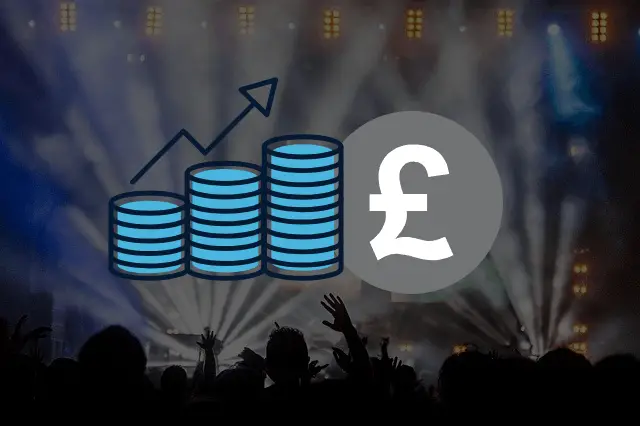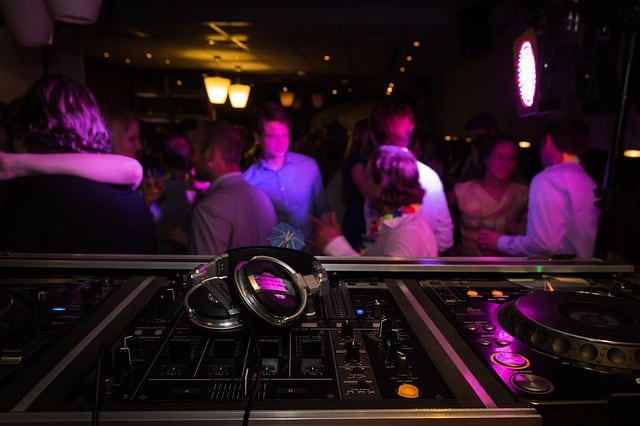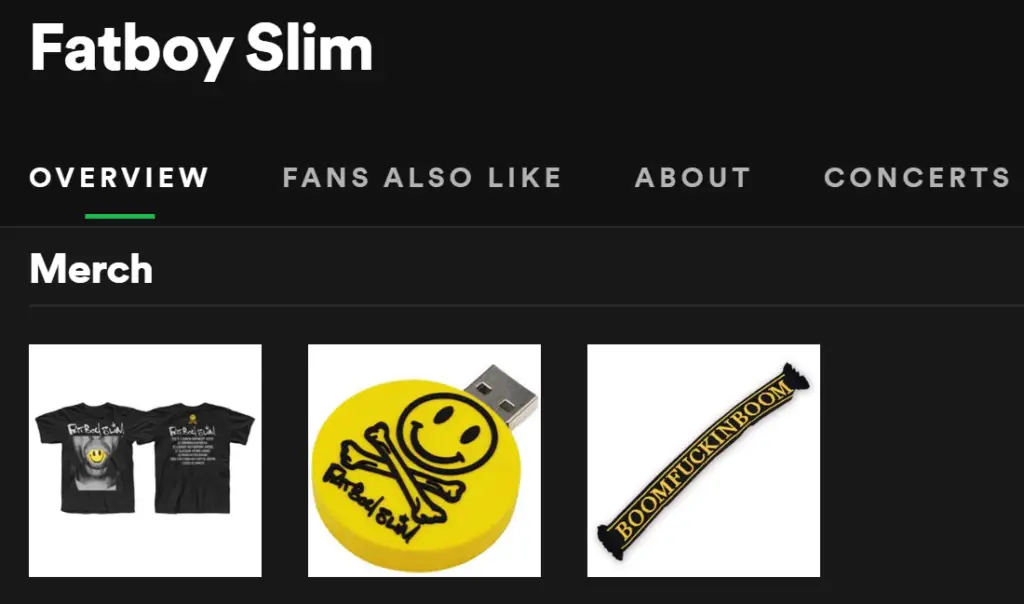
Is it your goal to become a full time DJ? If yes, then carry on reading you’re in the correct place.
By now you’ve likely got yourself to a level of DJing that you want to push further and start getting paid for some of the DJ gigs that you play. Even though DJing live is still a great way to earn some hard cash there are other avenues to pull in some money. In the digital age there are opportunities that DJs in the past did not have the option to capitalise on.
The core ways a DJ can make money are by:
- DJing live at events, clubs and bars
- Hosting a radio show
- Getting sponsored
- Producing music
- Online platforms
- Teaching
- Put on your own events
I’ve put together a comprehensive list of areas and ideas to inspire you as DJ to progress your career and make some money along the way.
It’s easier to make money than you think with DJing, you just need to pick the format that suits you and push ahead without any self-doubts.
DJ at Weddings
DJing at weddings can be reasonably easy to get into, so there’s a low barrier to getting involved with wedding DJing. With a reasonable amount of self-promotion and getting some gigs under your belt for a lower fee would allow you to build up a great portfolio.
Another angle is to sign up to a DJ agency that’s within the wedding DJ space. This is great to get you some gigs but agencies will likely take a cut of your money as an agency fee.
That being mentioned wedding DJs can make around £250 to £550 a wedding, so a decent amount could be up for grabs per year.
Here are some wedding agency websites to contact and see if you can get yourself on their books. Worth contacting to see where it leads.
Income potential per year = £19,200 to £48,000 (based on average of 2 weddings a week at £200 compared to £500 a wedding)
Mobile DJ for all Types of Gigs
DJs are in demand for commercial events, private parties and festival / themed events. A popular in demand DJ service is a ‘DJ with Live Musicians’, so if you have any musician friends then get them on board an start promoting yourselves.
Believe it or not you can even offer your DJ skills up for silent Disco’s too. Check out this website here for some ideas for the different types of events.
According to the booking agency Alive Network the range of prices that DJs charge ranges from £277 for a DJ to around £4k for a DJ & musicians.
DJ in Local Bars

Local bars are a great way to get started for free and potentially some extra cash one you’ve showed that you’re a great DJ. Since chatting to some local DJs in my town they get around £100-£150 on the night in cash for a few hours work. The local bars tend to have their own CDJs or turntables setup, but are likely open to letting you DJ with your own DJ controller.
Where to begin? My advice would be to get stuck in with some networking with the managers and owners of locals bars. Give them your most recent mixtapes on CD, USB and even a business card linking to your Soundcloud or Mixcloud. You can always email them after you’ve first met too to follow up.
DJ for free initially. It could be worth offering to do some initial DJ sets in a local bar for free or for a low fee. This will help you to get some great experience at low risk as the capacity of a bar is that high.
If you can, try to record your DJ sets in local bars. This will make for great promotion of your own DJ brand online for social media and audio platforms like Mixcloud. The local bars will appreciate the promotion too.
Promoting local bars and events could help lead to bigger and better DJing gigs in there future, and higher paying gigs also.
Become a Resident DJ at a Club
A logical progression from DJing in local bars, you can aim higher after a certain period of time and you feel ready to progress.
Once you’ve built up a decent reputation as DJ with experience DJing in bars and clubs regularly (potentially a few weddings or radio shows in there for good measure too) it could be a good time to explore getting a residency.
Some DJ’s get to play week in week out or at least a regular slot per month. This will give you regular income require to keep going as a DJ.
According to Mixmag’s article on ‘What DJ’s really earn‘ an up-and-coming “national” DJ can earn anywhere between £250 to £2,500 a night. So you can see the earning potential for becoming a a resident DJ a popular nightclub in a city. Don’t forget potential earnings of playing DJ gigs other than the residency too.
Top advice I’d give with gaining a residency is to:
- Pick a club or bar night that you love and attend it on a regular basis
- Understand the music and the type of people that attend
- Get to know the managers and promoters
- Share a mixtape with the right people that run the night
- Make sure you know how to mix with their DJ equipment
- Be polite, consistent and reliable. It’s likely you’ll get past the opening set to a more peak time in the night. Keep DJing well and that will put you in good stead.
Put on Your Own Events
Recently I stumbled across an amazing article by Danny Savage about the reasons to put on your own DJ events at nightclubs. I found this article online because I’m fascinated about setting up and putting on my own DJ events and potentially an area at a local festival.
Danny Savage states in his article that he nearly gave up being a DJ in his early twenties, and after a visit to Ibiza a few years later was inspired again to pick up DJing again. Subsequently he ended up running his own event and quickly realised that this is a super charged way of becoming a well known and mainstream type DJ.
There’s not much of an indication of how much it costs to set up a night, but common sense would say that marketing, club venue hire and potentially equipment cost would be the core costs. But to me this path is invaluable if you are looking towards making a name for yourself as a DJ. This option is definitely more lucrative (providing the hard work) compared to trying to get in there with existing nights and promoters.
Even though running your own nights might make a lot of money, ultimately making a name for yourself will help towards getting head hunted for the big line ups at festivals and destinations like Ibiza.
Produce Music
Creating your own music is another method to fuel the fire for making money as a DJ. A lot of DJs make a name for themselves with music releases and all it takes is one hit that really takes off.
For example, DJ Marky released a track called LK which helped become well known as a DJ producer. In all fairness the guy is an absolutely legendary DJ, however I certainly wouldn’t of heard about him as quickly if it wasn’t for his music production.
With the way that the music industry it seems that there’s more money to be had with playing live events vs making music. Having said that here’s a break down of a few platforms to feature your music. what you can expect from each of the below platforms to make money.
- Spotify
- Soundcloud
- YouTube
- Patreon
- Deezer
- Tidal
These streaming services offer revenue per play in the region of $0.0007 to $0.0125 cents per play (Data taken from Information Is Beautiful).
So you can see you’d need plays of your music to exist in the hundreds and thousands of music plays, if not millions to make any real weighty money.
Signed up to a label? A point to make about total profit you make will depend if you’ve signed up to a label or not. If you do sign up to a label you’ll see a portion of the revenue end up in the labels pocket. Aiming to keep hold of the rights to your own music will mean that you’ll reap all the monetary rewards.
Aiming to create music is an investment for sure and can really pay you later on down the line. The promotion of your DJ “brand” can really excel and gain you more DJing gigs, which means more frequent money in the long term.
DJ at Label Events
In the scenario you’ve signed up to a label then chances are they will put on their own label nights and events. This is a great way to make some more money and will certainly feed self-promotion of your DJ “brand” and contribute to more sales of your music production.
Here are some examples of record labels that run their own label events and festivals etc.
- Hospitality On The Beach – (Hospital Records)
- Liquicity Festival– (Liquicity)
- Defected in Ibiza – (Defected)
Even if you’re not apart of a label you should definitely try and make a few connections with the guys that run events like these. You never know you could be featured as an opening DJ for one of the days. Great experience either way, and you might end getting paid some decent money at the end of it.
DJ at Local Festivals
In the past 5 to 10 years, festivals on a lower scale to say Glastonbury have popped up everywhere. Even though the summer season appears to be the dominant time to attend festivals, there might even be some winter/mid-season based festivals.
Adopt a similar approach to record label events, put some killer mixes together and focus on networking. Remember bringing a crowd of people with you is a sweetener for the promoters of a festival so be sure to factor that in when networking for DJ gigs.
DJ for Free (PR & Exposure)
This is an obvious point to make but I feel it’s a valid point nonetheless. I’d suggest this type of activity is more prominent for DJs at the beginning of their career looking to make a name for themselves. This really does lend itself more of an investment for the future.
Fair enough you’re not making any money for a few DJ gigs here and there at the beginning, but the experience, contacts and marketing you can achieve from it will certainly pay dividends if you continue to pursue DJing as an income based activity.
Network & Promote Yourself
Networking and promoting yourself is not a direct money maker, it’s more of an influencing factor to make you more attractive as a DJ to promoters for example.
Promoting yourself early on and making sure you build up an online presence is really important.
First, research the people that run specific club nights and events that you DJ at for example club promoters, staff at the club, fans of the club, marketing people that work for the club and even anyone in PR or journalists that have written about the club before.
Secondly, find out who are the related people in their circle of friends/contacts too. Facebook, Instagram and maybe LinkedIn could be a great source of information for achieving this. Connect with them, you’ve got nothing to lose.
Knowing this will allow you to share your mixes on social media and chat to these people that are “following” you. Meaning that when you speak to promoters directly, at least you can be potentially validated by your “following” if the promoters question who you are. The purpose of this is to be validated or at least heard of by the people that club promoters know (or key people you’re looking to work with).
Remember the work you put in here increases the potential for you getting more gigs early on in your DJing career.
Sell Merchandise (Your DJ brand)

T-Shirts, hats, hoodies, stickers, you name it you can sell it with you DJ brand slapped on it. Once you’ve built up a decent following online it’s likely that you can start capitalising on selling your own branded merch.
Musicians and DJs on YouTube seem to push their merchandise a lot on YouTube below their videos. I’d imagine this would take off when you start getting video views into the hundreds of thousands and into the millions.
I’m not sure how popular it is, but Spotify offer a section on the artist pages that allow you to purchase merchandise. Usually selling vinyls, CDs, and in some cases t-shirts too.
There are some really great websites out there that allow you to design your t-shirts. When you start getting orders arriving to your website store the 3rd party t-shirt website will dispatch the orders to your customers.
Here are a couple of platforms that allow you to setup your designs and your merchandise.
If you want to read more about selling merchandise, read an article by Shopify here, it’s super detailed and gives you the full breakdown.
Get Sponsored to DJ
Purpose of sponsorship? You need to start with a goal and understanding of why you’re looking to pursue sponsorship. Why do you need or want the sponsorship from the brands that you’re approaching.
Example sponsorship reasons:
- It could that you’re looking to run a competition and give away to your following on YouTube, website or podcast show.
- You might be putting on your own event which will include a prize give away. This could be tied into getting peoples email addresses to expand your database of people to contact for future events and marketing.
- You need more DJ equipment to practice and perform with.
The benefit to a company for example Pioneer or Denon needs to be clear. Brands like Denon for example need brand exposure / awareness and that means quantity of peoples eyes on the brand.
Social following. This is why a social following can snowball your income related activities 10 fold. All the effort that you’ve put in to network with people, create a radio podcast show, DJ for free at certain gigs and put on your own events will all start to pay dividends with sponsorship activity.
A social following will give you the social clout in which you can promote your sponsors brands.
Pitch creation. Create a pitch that exposes a win win scenario. How will the sponsorship benefit the brand that you need something from? Explain costs and details to break down logic of how much reach a brand will get through you promoting them.
For example in marketing you can buy 1,000 impressions e.g. on Google AdWords or Facebook. So this model can help with potential pitch data and you can use this process:
- highlight the cost of the product or sponsorship cost
- divide the cost by the estimated reach or 1,000 impression based upon your following
Breakdown your pitch into sections. Detail your approach logically, explain the win win situation and highlight your future long term plans of how you will both work together. Having a social following and evidence of how you’ve built your following at this point in time does help a lot.
Research & contact people. Start by building a list of contacts through research online. Be polite, find the right time in which you can contact them. Following the pitch that you’ve created and convert those brands into sponsors. This process is really a numbers game, so keep going and don’t give up. Remember to always keep working on building up your research of contacts and social following.
Become a DJ Teacher
You have two options here:
Firstly you can look to work for an existing music school that offers DJ courses.
Working for a music school teaching DJing can be done easily if you’re adept at DJing. There are a lot of schools in London and other big cities that offer these courses. So if you can showcase your skills there’s a good chance you can work for a DJ school.
DJ courses cost around £250-£750 depending on the course structure and skill level involved. Of course you will be on a wage so won’t get a direct cut of the money, unless otherwise agreed.
The other option is to create your own DJ course online.
A great option to make some more money, estimated around £500-£2,000 per month. This option is way more profitable in my opinion however requires a lot more effort input from the beginning until it’s really popular and whether your brand is known by a large amount of people.
Become a Radio DJ
Taking a training course in radio DJ presenting is a logical step and will give you the grounding for getting going. Pointblank has been a training course provider for radio DJs for quite some time now so it’s worth checking out their courses.
My advice is to get some practice presenting on radio along side training by getting onto a low level local radio show, online radio show or podcast. There’s some benefit to this as it will allow you to build up confidence presenting live or onto a recording.
One thing in the past that I’ve found useful to get some practice is to contact bigger radio shows such as KISS or Radio1xtra to see if they are running any new talent type radio slots. I had the opportunity a couple of times to get involved with KISS FM in Australia by contacting their website and got a lunchtime DJ slot.
Another tip to get some experience in the area of radio DJ presenting is by getting to know radio DJs that are currently on radio. Make friends with presenters and you can easily find yourself becoming a feature of their radio show, similar to how Radio1xtra features new artists DJing for 60 minutes. Especially helpful if you produce your own music as this can help as part of some marketing and self promotion of your own DJ brand.
Running your own podcast on a weekly basis can really help polish and perfect your presenting skills on a radio show. This is slightly cheating in a way that you can edit out the errors that you make but try to use this as a way to not edit and pretend that the whole thing is live, similar to a live radio show.
Remember to get your DJ podcast show out there on social media and feature on Mixcloud and Soudcloud.
All in all this experience will help you towards gaining a career in radio DJ presenting.
Making Money with Mixtapes Online
Mixcloud offers a fan to creator service whereby fans can follow their favourite DJs by paying a subscription fee around £3 per month. The benefits to fans is that they get zero advertisements, offline mixes and no advertisements upon playback. There are some recognisable DJs and labels to follow such as John Digweed, Defected Records (my fave) and Ibiza Sonica Radio.

Although this option sounds great, Mixcloud does take 40% of the money that you make. Having said that it’s a great way to get some passive income while you keep posting regular DJ sets or shows. It seems that you must register your interest at the moment as Mixcloud decides whether to roll out this service in the future.
Bonus – Advice from Successful DJs that actually get paid now
- Ask for money or at least something of value in turn for your DJing services. Sometimes money is not given so make sure you get paid with drinks, food or something of value at least.
- Act as a business. Learn some business skills such as finance, negotiation tactics etc. Professionalism goes a long way with people that run clubs, bars and events. It’s more likely they will take you more seriously if you can chat business, sales and marketing talk with them.
- Try putting on your own DJ event and see how well it goes for your DJing brand exposure. It could help explode your DJing career in the right direction.
- Starting out can be tough, but not impossible. If you’re stubborn and DJing in a fairly niche genre of music, then get a related job in music e.g. music teacher, music shop, audio production assistant or even a journalist of music. This can help support your DJing with cashflow and potentially even networking with new contacts to get DJing gigs too.
Final Advice
The key theme for a lot of this article shows that you have to start somewhere to eventually achieve the level of return that you might desire. So don’t expect to be getting paid top money from the early days of your DJing. Hard work pays off.
Consistency is key! Week in, week out focus on creating mixtapes, sharing your mixes, promoting yourself on social media / Soundcloud / Mixcloud, create and promote your podcasts.
Network to get gigs by making friends and acquaintances, eventually you will find yourself building up enough DJing experience and exposure that your income will start becoming more noticeable in your bank account.
Related Questions
How much do radio DJs make?
In the UK Radio DJs can get paid in the region of £17k and £43k per annum according to payscale.com. Factors that influence how much radio DJs get paid is based on years of experience and the type of radio show being hosted e.g. local radio vs national radio. Some presenters on the BBC can earn £50k up to around £2 million for example Chris Evans.
How much do top DJs get paid?
Top performing and well known DJs can get paid around £10k to £20k per DJ set if filling a massive stadium. Up and coming DJs can expect in the region of £250 to £3000 per DJ set. Factors that influence how much a DJ can get paid to DJ in clubs include popularity of a DJ, how long a DJ has been around for and if a DJ produces music. For example Calvin Harris can command a six figure sum for headlining festivals in America.

